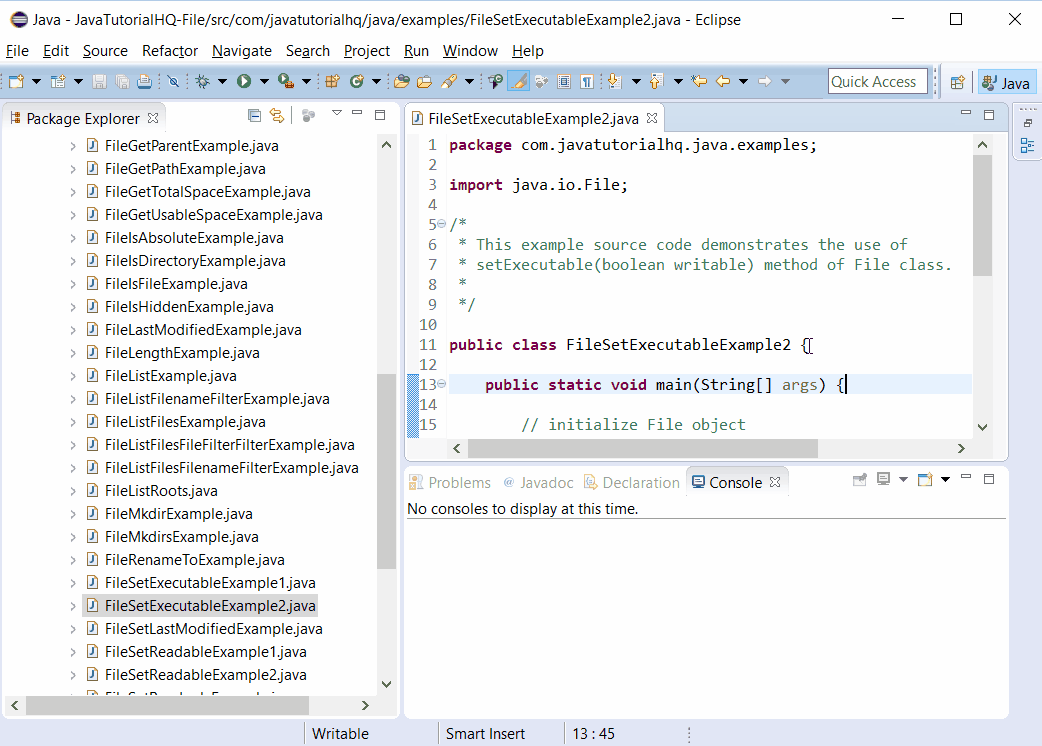java.io.File setExecutable(boolean executable)
Description
An invocation of this method of the form file.setExcutable(arg) behaves in exactly the same way as the invocation
Throws:
- SecurityException – If a security manager exists and its SecurityManager.checkWrite(java.lang.String) method denies write access to the file.
Method Syntax
public boolean setExecutable(boolean executable)
Method Argument
| Data Type | Parameter | Description |
|---|---|---|
| boolean | executable | If true, sets the access permission to allow execute operations; if false to disallow execute operations |
Method Returns
This method returns boolean, true if and only if the operation succeeded. The operation will fail if the user does not have permission to change the access permissions of this abstract pathname. If executable is false and the underlying file system does not implement an execute permission, then the operation will fail.
Compatibility
Requires Java 1.6 and up
Java File setExecutable(boolean executable) Example
Below is a java code demonstrates the use of setExecutable(boolean executable) method of File class. The example presented might be simple however it shows the behaviour of the setExecutable(boolean executable)method of File class.
Basically we basically set a file as executable and we put a check if the operation succeeded or not.
package com.javatutorialhq.java.examples;
import java.io.File;
/*
* This example source code demonstrates the use of
* setExecutable(boolean writable) method of File class.
*
*/
public class FileSetExecutableExample2 {
public static void main(String[] args) {
// initialize File object
File file = new File("C:javatutorialhqinputtest_file.txt");
// check first if file exist
if(file.exists()){
// set file as executable considering if the user is the owner
boolean result = file.setExecutable(true);
// evaluate the result
if(result){
System.out.println("Operation succeeded");
}else{
System.out.println("Operation failed");
}
}else{
System.out.println("File does not exist");
}
}
}

